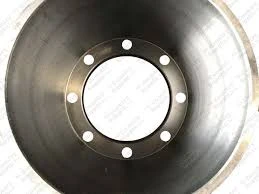
-
 Afrikaans
Afrikaans -
 Albanian
Albanian -
 Amharic
Amharic -
 Arabic
Arabic -
 Armenian
Armenian -
 Azerbaijani
Azerbaijani -
 Basque
Basque -
 Belarusian
Belarusian -
 Bengali
Bengali -
 Bosnian
Bosnian -
 Bulgarian
Bulgarian -
 Catalan
Catalan -
 Cebuano
Cebuano -
 Corsican
Corsican -
 Croatian
Croatian -
 Czech
Czech -
 Danish
Danish -
 Dutch
Dutch -
 English
English -
 Esperanto
Esperanto -
 Estonian
Estonian -
 Finnish
Finnish -
 French
French -
 Frisian
Frisian -
 Galician
Galician -
 Georgian
Georgian -
 German
German -
 Greek
Greek -
 Gujarati
Gujarati -
 Haitian Creole
Haitian Creole -
 hausa
hausa -
 hawaiian
hawaiian -
 Hebrew
Hebrew -
 Hindi
Hindi -
 Miao
Miao -
 Hungarian
Hungarian -
 Icelandic
Icelandic -
 igbo
igbo -
 Indonesian
Indonesian -
 irish
irish -
 Italian
Italian -
 Japanese
Japanese -
 Javanese
Javanese -
 Kannada
Kannada -
 kazakh
kazakh -
 Khmer
Khmer -
 Rwandese
Rwandese -
 Korean
Korean -
 Kurdish
Kurdish -
 Kyrgyz
Kyrgyz -
 Lao
Lao -
 Latin
Latin -
 Latvian
Latvian -
 Lithuanian
Lithuanian -
 Luxembourgish
Luxembourgish -
 Macedonian
Macedonian -
 Malgashi
Malgashi -
 Malay
Malay -
 Malayalam
Malayalam -
 Maltese
Maltese -
 Maori
Maori -
 Marathi
Marathi -
 Mongolian
Mongolian -
 Myanmar
Myanmar -
 Nepali
Nepali -
 Norwegian
Norwegian -
 Norwegian
Norwegian -
 Occitan
Occitan -
 Pashto
Pashto -
 Persian
Persian -
 Polish
Polish -
 Portuguese
Portuguese -
 Punjabi
Punjabi -
 Romanian
Romanian -
 Russian
Russian -
 Samoan
Samoan -
 Scottish Gaelic
Scottish Gaelic -
 Serbian
Serbian -
 Sesotho
Sesotho -
 Shona
Shona -
 Sindhi
Sindhi -
 Sinhala
Sinhala -
 Slovak
Slovak -
 Slovenian
Slovenian -
 Somali
Somali -
 Spanish
Spanish -
 Sundanese
Sundanese -
 Swahili
Swahili -
 Swedish
Swedish -
 Tagalog
Tagalog -
 Tajik
Tajik -
 Tamil
Tamil -
 Tatar
Tatar -
 Telugu
Telugu -
 Thai
Thai -
 Turkish
Turkish -
 Turkmen
Turkmen -
 Ukrainian
Ukrainian -
 Urdu
Urdu -
 Uighur
Uighur -
 Uzbek
Uzbek -
 Vietnamese
Vietnamese -
 Welsh
Welsh -
 Bantu
Bantu -
 Yiddish
Yiddish -
 Yoruba
Yoruba -
 Zulu
Zulu
drum brakes making noise when stopping
Understanding Drum Brakes Making Noise When Stopping
Drum brakes are a common component in many vehicles, especially in older models or as rear brakes in modern vehicles. They operate differently than disc brakes, using a set of shoes that press against the inside of a drum to create friction and bring the vehicle to a halt. However, like all mechanical components, drum brakes can develop issues over time, often leading to unusual noises when stopping. This article explores the potential causes of this noise, their implications, and the necessary steps to address the issue.
Common Causes of Noise in Drum Brakes
1. Worn Brake Shoes Over time, the brake shoes can wear down due to normal usage. As the lining becomes thinner, it may not make effective contact with the drum, causing a grinding or squeaking noise when the brakes are applied. If the wear is significant, it can lead to metal-on-metal contact, which not only increases the noise but can also damage the drum itself.
2. Dust and Debris Accumulation Brake systems can accumulate dirt, dust, and debris, which may enter the drum during operation. This buildup can lead to a grinding noise when the brakes are applied. Regular maintenance, including cleaning of the brake components, can help prevent this issue.
3. Moisture Exposure to moisture can lead to rust or corrosion on the braking surfaces. When water enters the drum, it can create a temporary coating that affects the brake's function, leading to noise during braking. This situation is often temporary, particularly in humid conditions, but sustained exposure can lead to more serious corrosion.
4. Drum Imperfections If the drum itself is damaged, warped, or worn unevenly, it can lead to noise during braking. This can manifest as a pulsating feel in the brake pedal as well as audible sounds when the brakes are applied. If the drum is damaged, it may require resurfacing or replacement to ensure effective braking performance.
5. Improper Installation If the brake components were not installed correctly, it could lead to misalignment or inadequate contact with the drum. This misalignment can result in increased noise and reduced braking efficiency. It is crucial to ensure that all components are installed according to manufacturer specifications.
drum brakes making noise when stopping

6. Lack of Lubrication Certain parts of the drum brake system require lubrication to function smoothly. For instance, the points where the shoes pivot in the backing plate should be lubricated to prevent squeaking or grinding noises. Inadequate lubrication can lead to increased friction and noise during braking.
Addressing the Issue
If you notice your drum brakes making noise when stopping, it's essential to address the issue promptly. Ignoring brake noises can lead to more severe damage and potential safety risks while driving. Here are the steps you should take
- Inspection Start by inspecting the brakes yourself; look for visible signs of wear or damage. However, if you're not comfortable doing this, a qualified mechanic should conduct a thorough inspection.
- Maintenance Regular maintenance, including cleaning and lubricating brake components, is vital in preventing noise and ensuring optimal performance.
- Replacement If the brake shoes or drums are significantly worn, replacing them is necessary. Always opt for high-quality replacements to ensure longevity and reliability.
- Professional Help If you’re unsure about the source of the noise or how to fix it, consult with a professional mechanic who can provide expertise and necessary repairs.
In conclusion, while hearing noise from your drum brakes can be alarming, understanding the potential causes helps you address the issue effectively. Prioritize regular maintenance and inspections to ensure your vehicle remains safe and reliable on the road.
-
What Are Drum BrakesNewsJul.07,2025
-
Understanding Brake Drum MaterialNewsJul.07,2025
-
Semi-Trailer Brake Drum: A Key Component for Extreme Loads and Long-Distance TransportNewsJul.07,2025
-
Drum Brake Pads for SaleNewsJul.07,2025
-
Brake Drums for SaleNewsJul.07,2025
-
Brake Drum ManufacturerNewsJul.07,2025
-
Aluminum Brake Drums: The Future of High-Performance CarsNewsJul.07,2025
